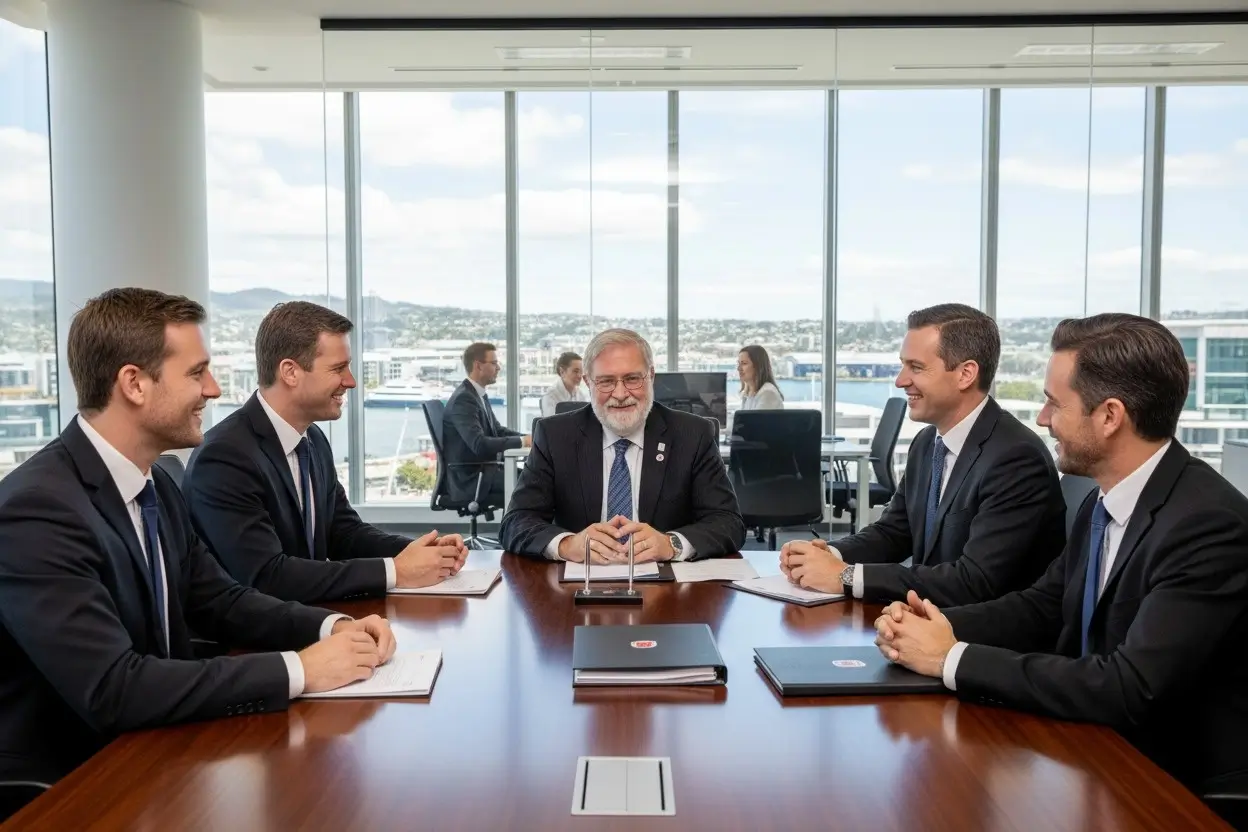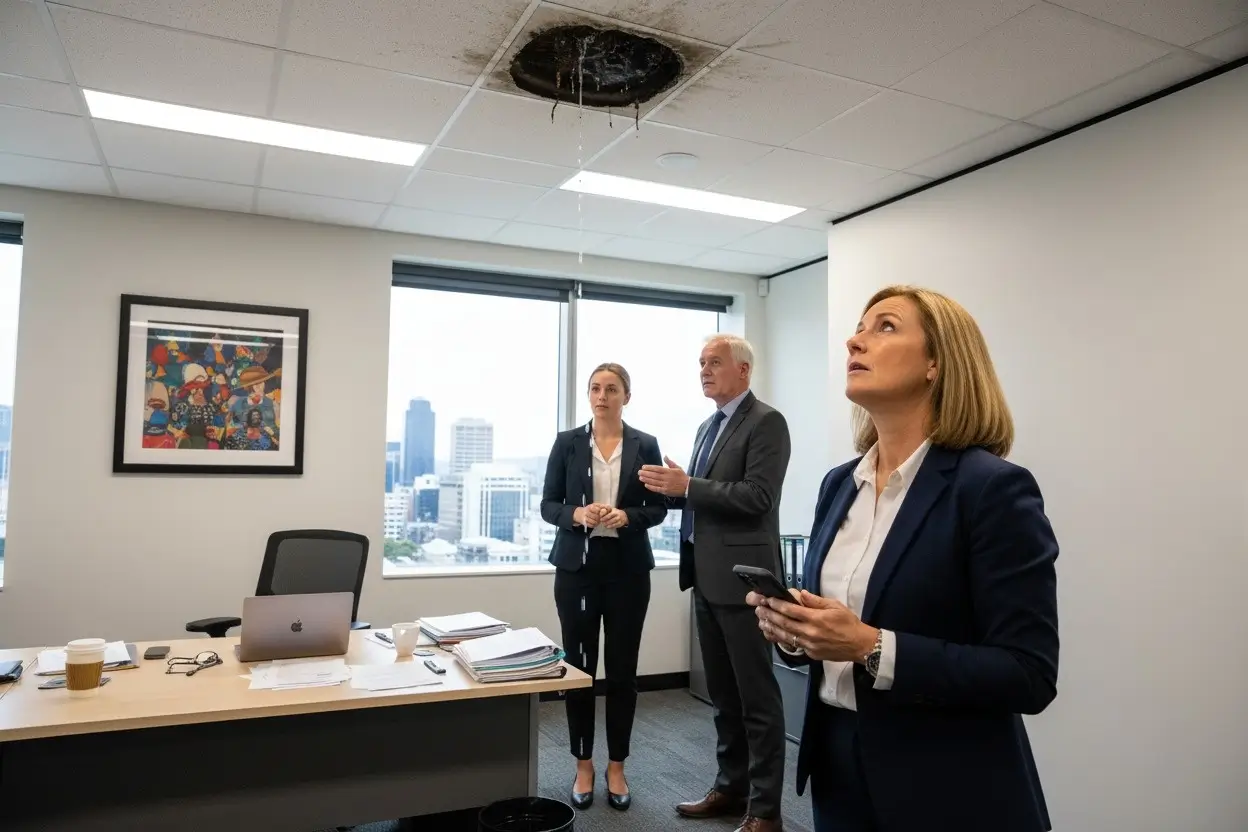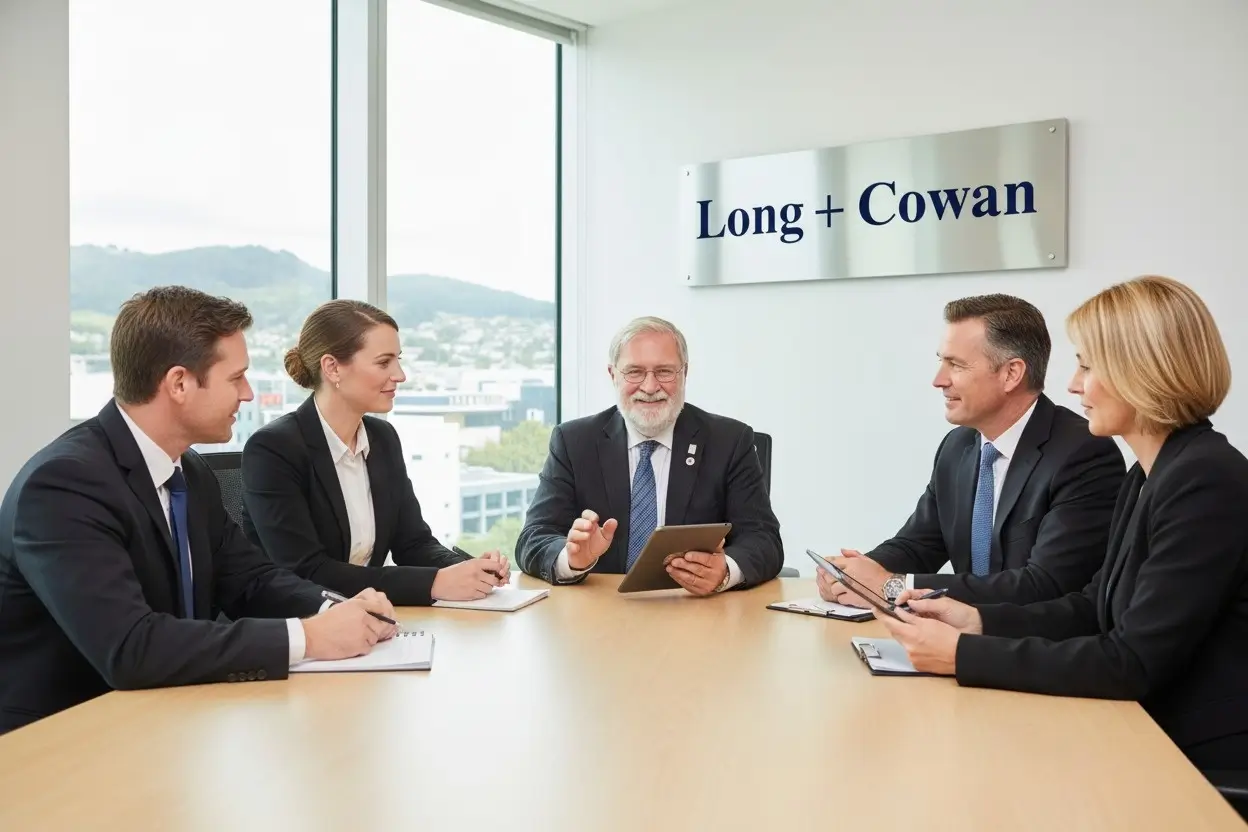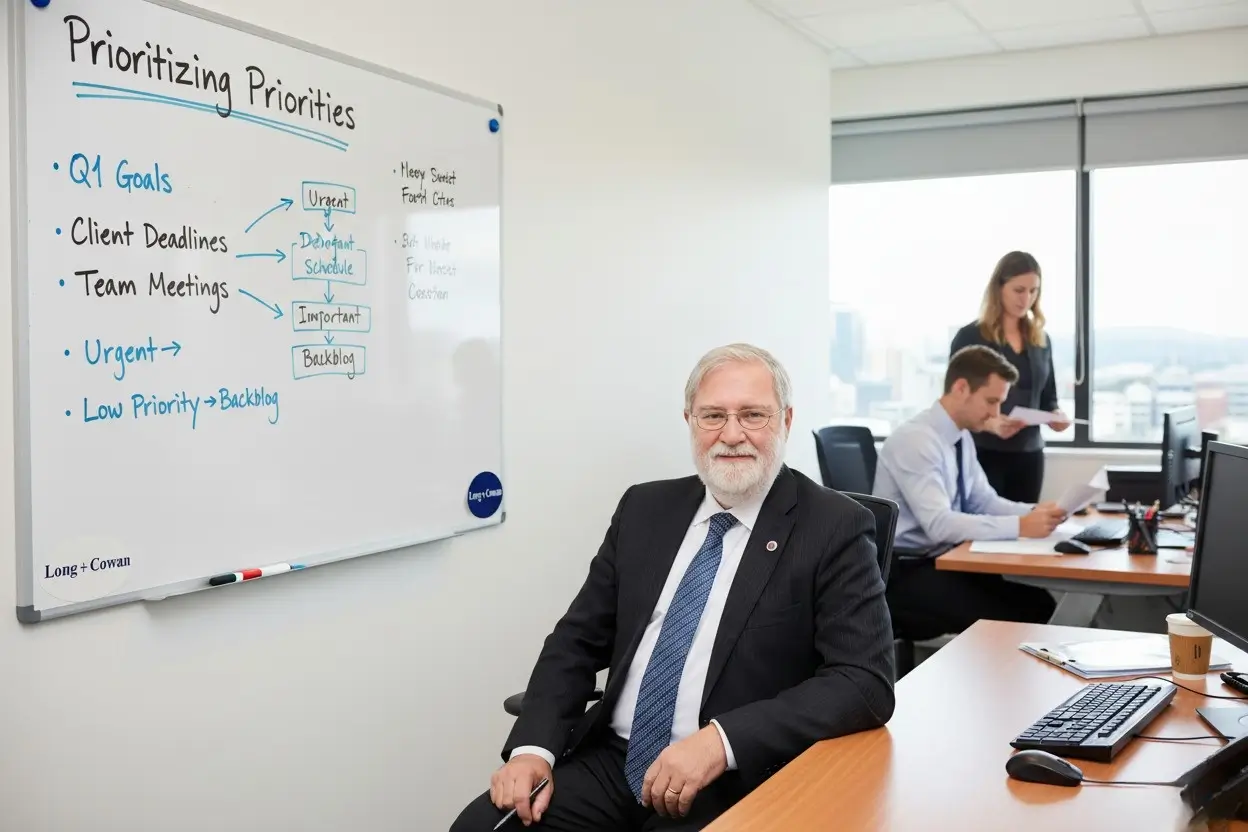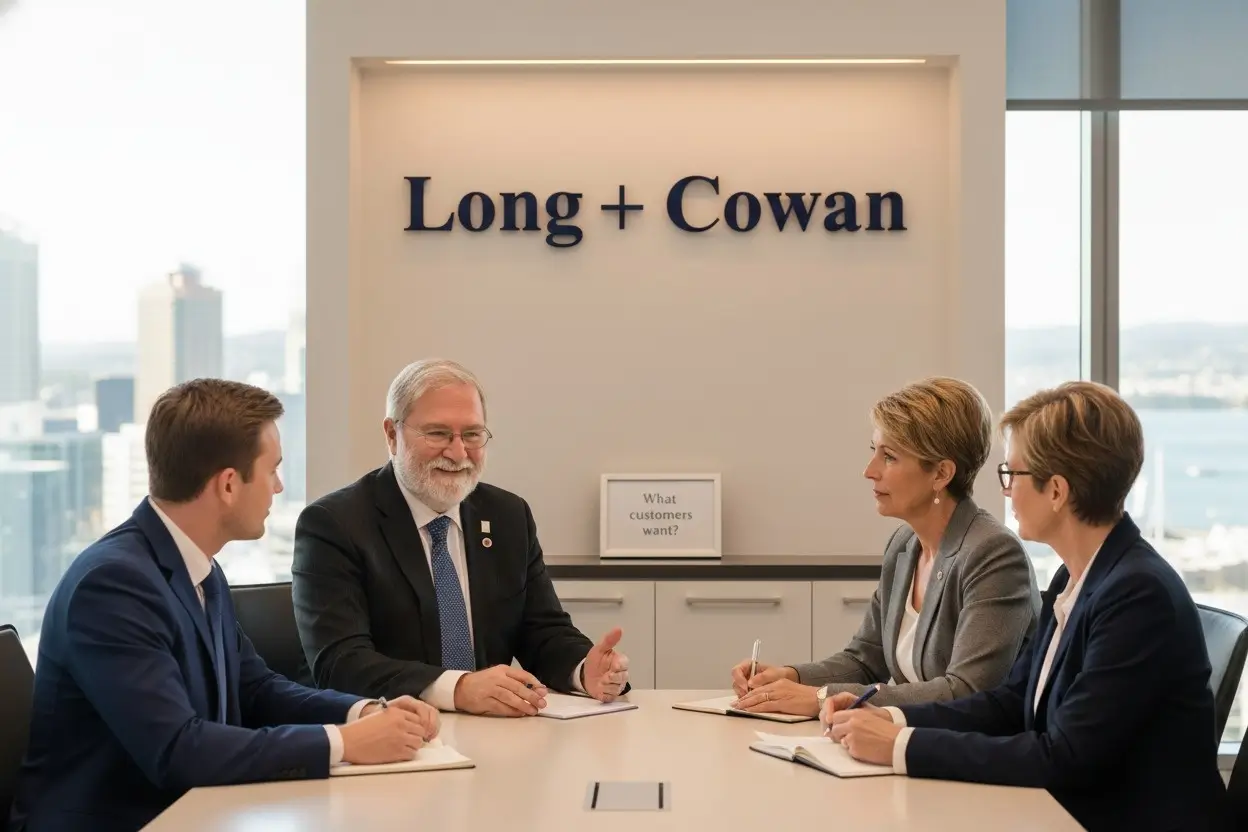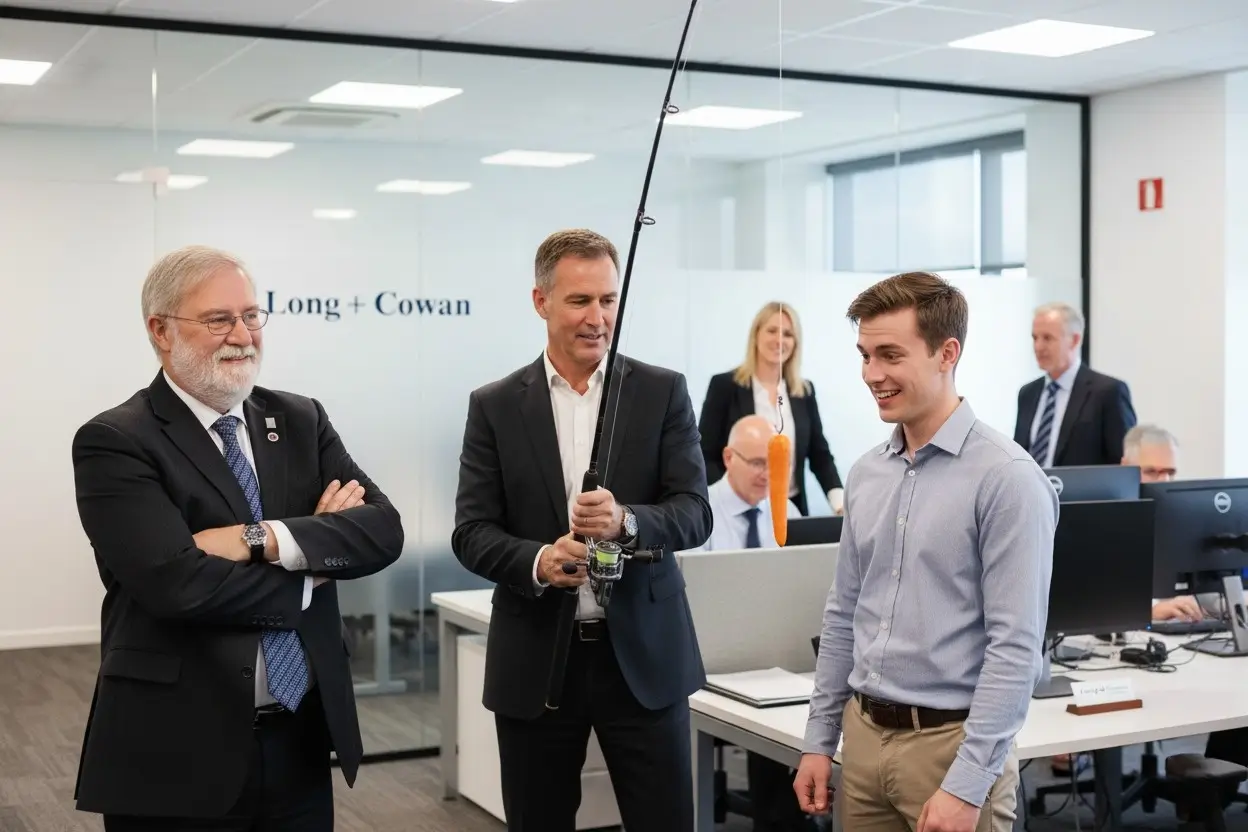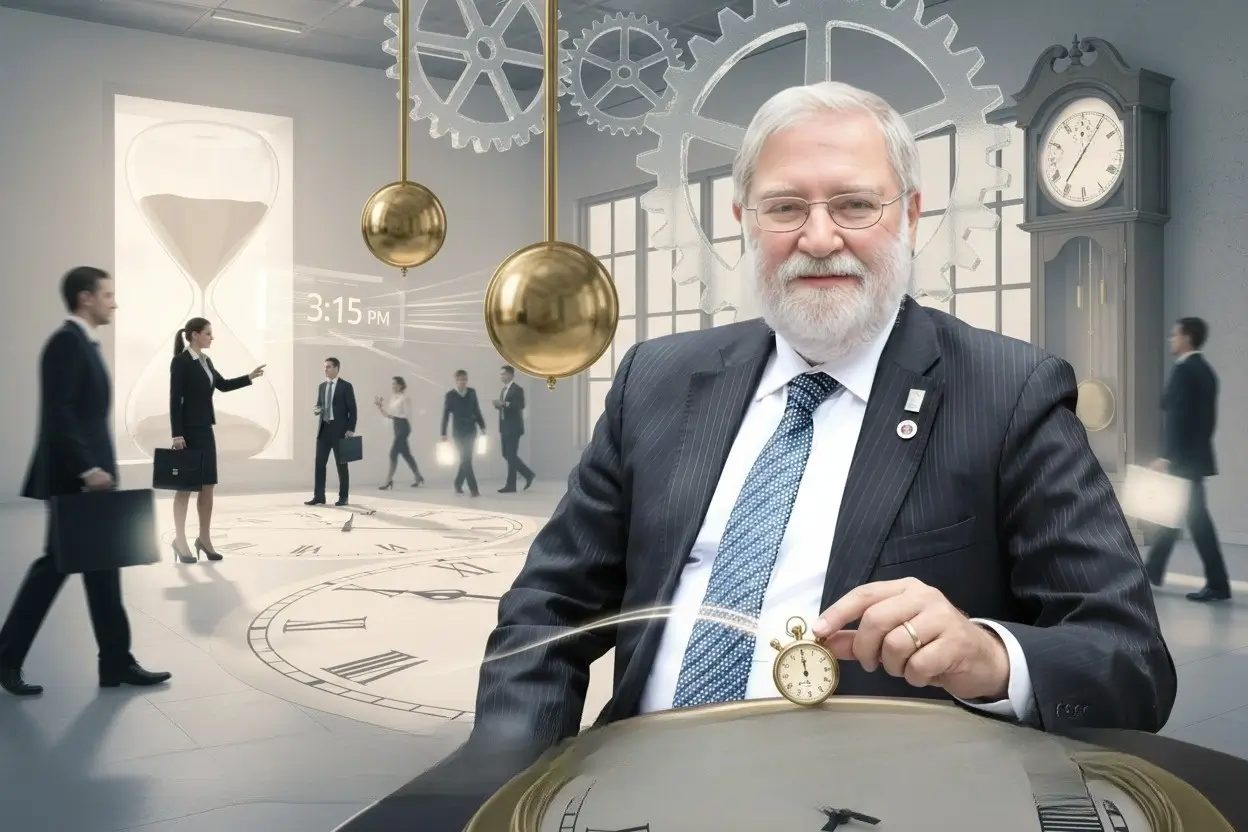At its core, effective management is about direction and coordination. Managers turn strategy into action, ensuring resources are used wisely and goals are met efficiently. At Long + Cowan, we see that Wellington businesses with strong management perform better, adapt faster, and maintain healthier teams.
Management bridges leadership and operations. It connects vision with execution, balancing people, systems, and performance. When managed well, businesses achieve stability and growth even in competitive markets.
The Difference Between Leadership and Management
Leadership and management are closely linked but not identical. Leadership focuses on inspiration and vision, while management translates those ideas into measurable results. Great managers lead through structure, accountability, and clear communication.
A balanced approach combines both. Managers who motivate as well as organise create workplaces where people understand expectations and feel supported in achieving them. This blend of leadership and management produces high-performing, engaged teams.
Establishing Clear Goals and Expectations
Clarity is the foundation of good management. Staff perform best when they understand priorities, deadlines, and desired outcomes. Unclear goals lead to confusion, duplication, and frustration.
Set measurable objectives and communicate them clearly. Review progress regularly to maintain alignment with company direction. At Long + Cowan, we advise Wellington businesses to link team goals directly to financial targets, ensuring every effort contributes to long-term results.
Organising Resources Efficiently
Resource management involves more than budgeting; it includes time, staff, technology, and expertise. Effective managers allocate these resources where they will generate the greatest impact. Good organisation avoids bottlenecks, reduces waste, and improves profitability.
Investing time in process review and workflow planning pays significant dividends. Managers who understand how their teams work can eliminate inefficiencies and build smoother operations that support both staff and clients.
Building Strong Communication Channels
Communication defines the relationship between management and staff. Open dialogue ensures problems are resolved quickly, expectations remain clear, and collaboration thrives. Effective managers listen as much as they talk, creating trust and engagement.
Encourage two-way communication by inviting feedback and acting on it. When staff feel heard, morale improves and productivity follows. Transparent communication builds loyalty and strengthens the culture of accountability.
Delegating with Confidence
Delegation is a key element of effective management. Managers cannot and should not do everything themselves. Assigning responsibility to capable team members develops their skills and allows leaders to focus on strategy.
Delegation requires clarity and trust. Define the scope of work, provide necessary resources, and give staff authority to make decisions within their role. This empowerment increases ownership and delivers faster, higher-quality results.
Motivating and Supporting Staff
Strong management recognises that motivation drives performance. Understanding what inspires each team member helps maintain engagement. Recognition, growth opportunities, and clear career paths keep employees committed.
Support matters as much as reward. Check in regularly, provide training where needed, and celebrate achievements. A workplace that values its people experiences lower turnover and higher loyalty, both crucial for long-term stability.
Monitoring Performance and Providing Feedback
Performance management ensures effort aligns with results. Regular reviews, when handled constructively, keep staff motivated and accountable. Feedback should be specific, balanced, and forward-looking.
Use measurable criteria such as deadlines met, quality of output, and collaboration levels. Recognise achievements and address challenges quickly. Managers who maintain consistent feedback loops promote continuous improvement across teams.
Making Informed Decisions
Managers make decisions daily that influence both short-term results and long-term strategy. Informed decision-making requires accurate data and sound judgement. Relying on instinct alone creates inconsistency.
At Long + Cowan, we help Wellington managers use financial and operational data to guide choices. Decisions grounded in evidence improve profitability, reduce risk, and support smarter planning. Data-driven management is proactive rather than reactive.
Managing Change Effectively
Change is constant in business. Whether adopting new systems or responding to market shifts, managers must guide teams through transitions smoothly. Resistance often comes from uncertainty; clear communication and structured planning reduce anxiety.
Share reasons for change and involve staff in solutions. When people understand purpose and impact, they engage rather than resist. Strong change management turns potential disruption into opportunity.
Encouraging Collaboration Across Teams
Management is not about control; it is about coordination. Encouraging collaboration across departments improves creativity and efficiency. Shared projects, regular updates, and open communication break down silos.
Cross-functional cooperation helps businesses deliver integrated solutions for clients. In Wellington’s professional service environment, this approach enhances responsiveness and strengthens competitive advantage.
Balancing Authority with Approachability
Effective managers balance authority with approachability. They set standards firmly yet remain open to discussion. This balance fosters respect without fear, encouraging honest communication and stronger teamwork.
Managers who are approachable gain valuable insight into daily operations. When staff feel comfortable raising issues early, problems are solved quickly and morale stays high.
Using Technology to Improve Management Efficiency
Technology supports modern management through automation, reporting, and communication tools. Cloud-based accounting systems, project management platforms, and data dashboards make oversight simpler and more accurate.
Implement systems that provide visibility without unnecessary complexity. At Long + Cowan, we help clients integrate financial and operational software so managers can monitor performance in real time and make timely adjustments.
Developing Future Leaders
Effective managers build future leadership within their teams. Mentoring, coaching, and succession planning ensure continuity and growth. Identifying potential leaders early allows skill development before critical transitions occur.
Encourage staff to take on new challenges and share responsibility. Building leadership capacity strengthens resilience and ensures the organisation remains adaptable in changing conditions.
Applying Strong Management Principles Across Wellington Businesses
Across Wellington Central, Johnsonville, and Kelburn, local firms rely on solid management to maintain focus, efficiency, and profitability. Applying effective management principles improves communication, delegation, and accountability across every level.
Strong managers create organised workplaces where staff perform confidently and clients receive consistent, high-quality service. Good management transforms goals into measurable outcomes.
Partnering to Strengthen Business Leadership
Long + Cowan supports Wellington businesses with advisory services that connect management performance to financial success. We help leaders build systems for delegation, monitoring, and communication that drive consistent results.
For expert guidance on strengthening management capability and improving productivity, contact us for more info by filling in an enquiry form or e-mailing or calling us during office hours. Effective management builds stronger businesses—let us help you achieve it.













